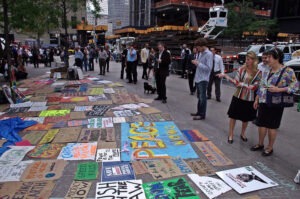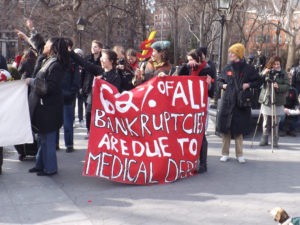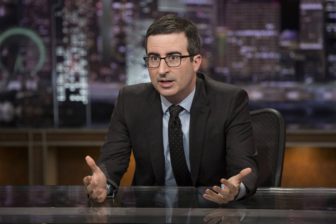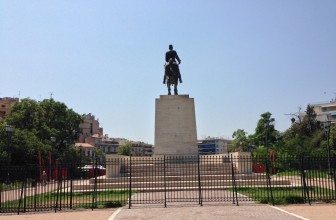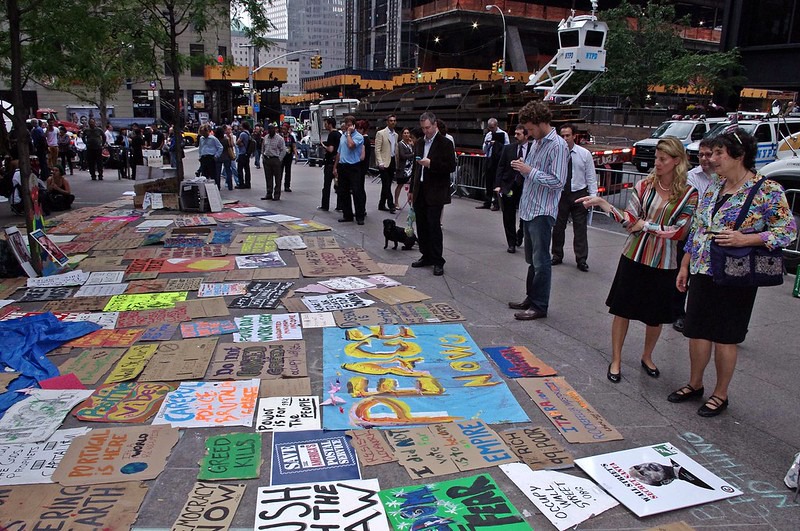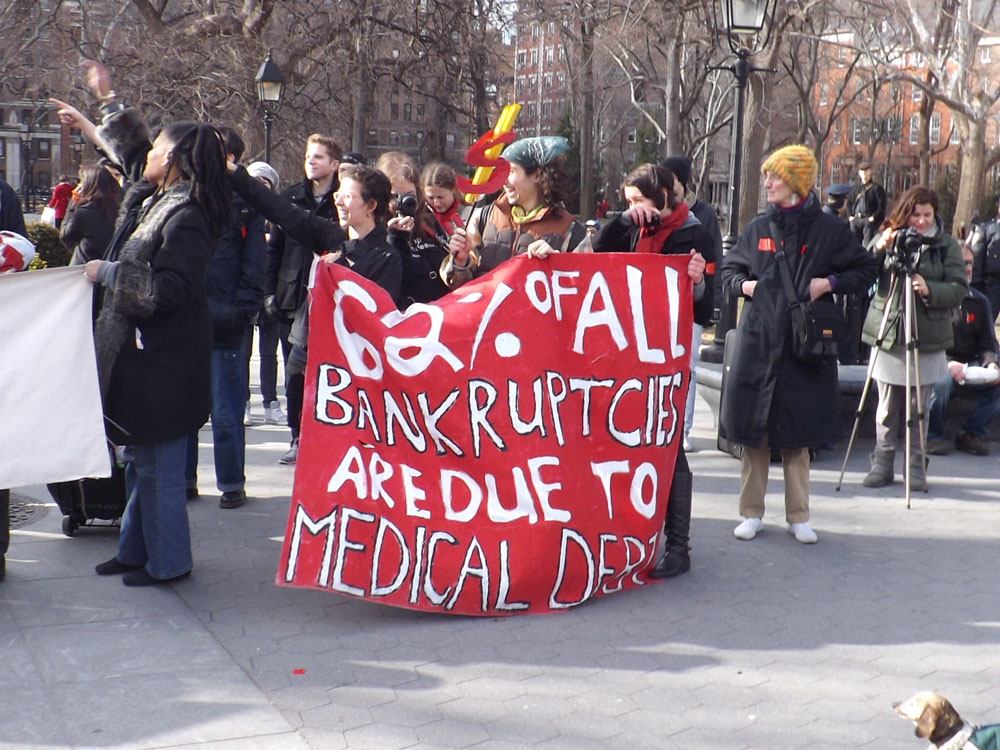November 15, 2011; Source: The Empire | In an extraordinary show of support, a number of elected officials from the state and city of New York convened outside the state supreme court in Lower Manhattan Tuesday to decry the early morning raid on the occupiers of Zuccotti Park. The raid was ordered by Mayor Michael Bloomberg. One might have expected that other elected officials would stay publicly mute, but not this time.
Manhattan Borough President Scott Stringer told the crowd, “Today is not the end. Today is in fact just the beginning.”
Public Advocate Bill DeBlasio said to the crowd, “What happened this morning was wrong. It was unnecessary. It was provocative. And it will only create more conflict . . . Other cities have managed to find a positive resolution, including looking at alternative sites [for the demonstrations]. The Mayor and his team never have done that. And that’s a mistake.” Councilmember Jumaane Williams, whose office put the press conference together, said, “Make no mistake about it: this was an act of cowardice, on so many levels . . . The mayor has behaved as a coward would.”
City Comptroller John Liu said there was no compelling reason for the raid, and Councilwoman Leticia James was even more damning: “Under the cover of darkness, in the absence of the glare of the media, the Mayor of the City of New York turned Zuccotti Park into a police state.”
Other responses from elected officials can be found here.
Sign up for our free newsletters
Subscribe to NPQ's newsletters to have our top stories delivered directly to your inbox.
By signing up, you agree to our privacy policy and terms of use, and to receive messages from NPQ and our partners.
Meanwhile, another Manhattan City Councilman, Ydanis Rodriguez, remained in jail after being arrested in the raid, and, as of yesterday afternoon, reportedly had not been allowed to consult with his lawyers.
The National Lawyers Guild tried to get a restraining order to force the city to allow the protestors to recamp in the park. The judge originally ruled for the order but then ruled against it later that same day.
As one observer has commented, the danger here might be in having the point of the movement become public land rights rather than economic equity, but we are sure that those involved are already figuring out the moves that need to be made next. —Ruth McCambridge


